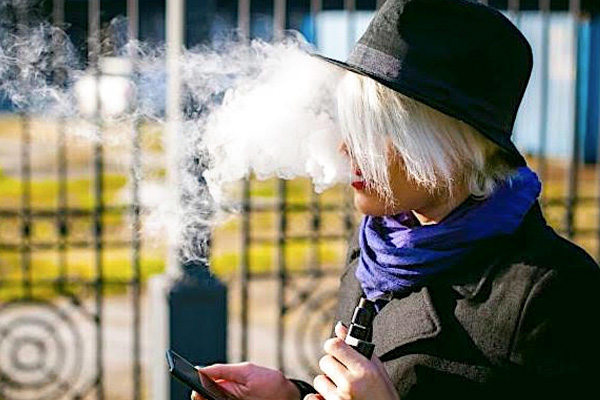LIKE IT AIN’T BAD ENOUGH ALREADY –
Feb. 28, 2023 – “When better coping skills are developed, there may be fewer temptations to try to manage anxiety symptoms and similar mental health challenges through vaping, as well as better refusal skills if offered an electronic cigarette,” said senior study author Dr. Rose Marie Robertson.
“Increased priority on more positive behaviors to alleviate tension and manage anxiety symptoms may reduce the likelihood of vaping, possible addiction and the increased risk of negative health outcomes,” added Robertson, who also serves as the deputy chief science and medical officer of the American Heart Association. She also cited an “urgent need” for campaigns and educational programs to warn young people about the risks of vaping and e-cigarettes. On TikTok last year, one religious vaper reported nearly dying after her lung collapsed “spontaneously,” urging fellow young adults to put down their e-cigs for good.
The American Heart Association survey also found that dual vapers were more likely to exhibit addictive behaviors towards nicotine — like waking in the middle of the night to partake in the habit — but they also reported feeling less depressed after vaping compared to their counterparts.
Meanwhile, strict nicotine vapers were more likely to report the substance had no impact on their feelings of depression.
“Although we knew that THC was commonly vaped, we were surprised to have so many dual vapers — more than double the nicotine-only vapers,” said Hart, stressing how vital it is to teach healthy coping mechanisms to young people. “Dual use may either compound the addictive nature of vaping or attract people who are more prone to addiction, as well as have an impact on symptoms of depression.”



